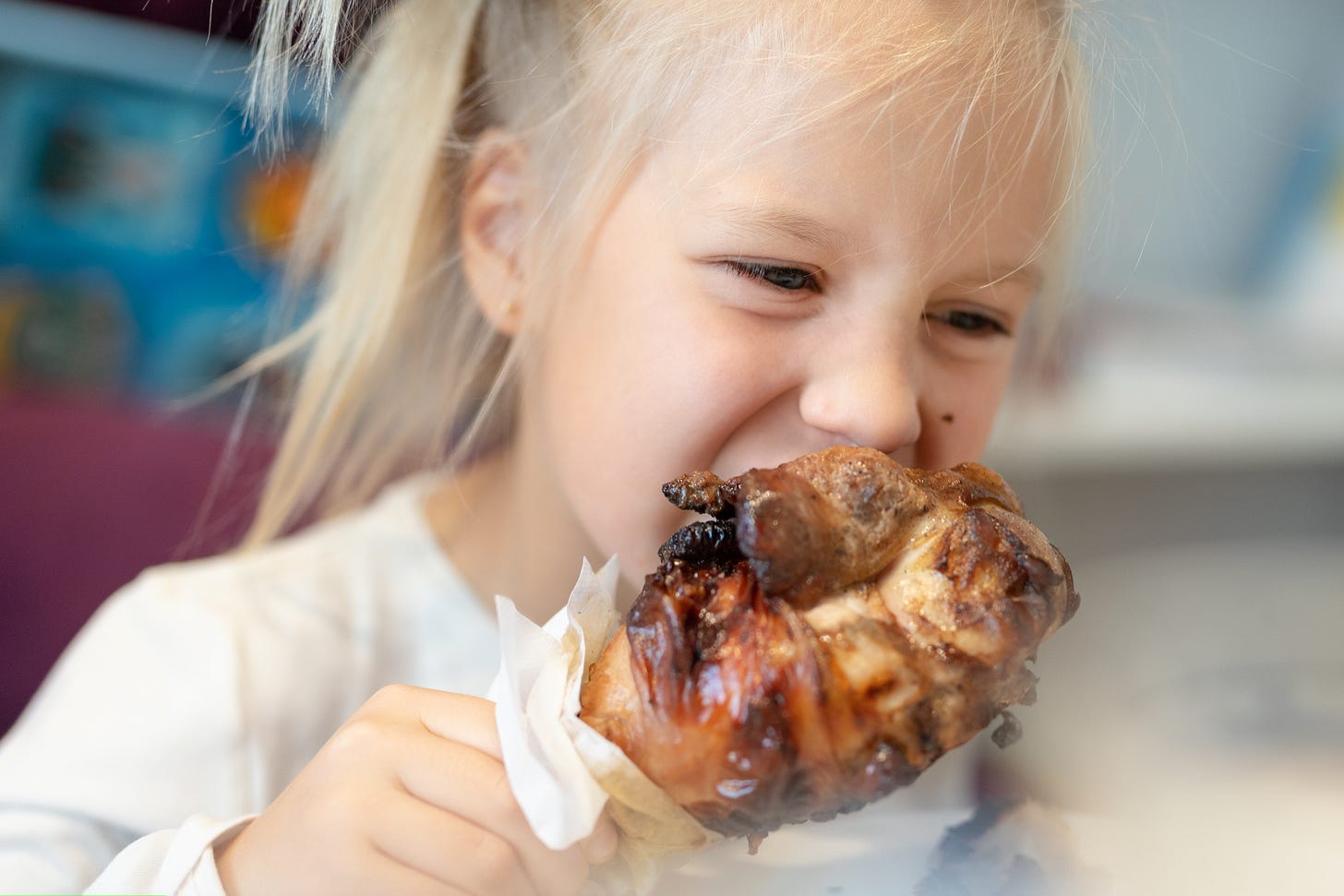The Power of the Heads Up
This week I was reminded yet again: Kids do much better when they know what's coming.
Every time I make roast chicken, my nine-year-old turns into a monster. She haaaaaaaaates roast chicken, even though she happily eats the exact same bird in many other forms: nuggets, burritos, sandwiches. Grilled is fine, too. But if I pull it out of an oven, it’s The Grossest Thing Imaginable.
She communicates her horror in various ways. Recently, upon seeing roast chicken on the dinner table, she has moaned things like “CHICKEN?! AGAIN?!” before storming out of the room. We (very loosely) adhere to Ellyn Satter’s Division of Responsibility approach, which dictates that parents choose and prepare the foods, while kids decide what and how much of it they want to eat. As part of that, I make sure to prepare at least one meal component that I know my kids will like — so on roast chicken days, I always have bread or potatoes or rice, and (this is where my Division of Responsibility kind of breaks down) I also sometimes let them get up and grab or prepare something else to eat, like fruit or yogurt.
In other words: When I make roast chicken, it’s not like anyone starves.
As you might imagine, my daughter’s roast chicken aversion drives me nuts. Well, it’s not the aversion that drives me nuts; it’s how she deals with it. I’ve talked to her before about all the things: How much work it is for me to make dinner; why it’s more polite to keep her negative opinion to herself, especially since she has already shared it 700 times; why she is actually quite fortunate because, when I was growing up, I had to eat everything on my plate before I got dessert, and let me tell you, brussels sprouts back then were GROSS.
But a couple of days ago, when I yet again served roast chicken (I will not be deterred!!!!), things transpired very differently. At first, I was like “wtf just happened,” but then I reflected and slapped my forehead with my hand and said “Oh, duhhhhhh, of course.” Because sometimes, even as a so-called parenting “expert,” I forget the lessons I have learned over and over and over again.
Here’s what happened.



